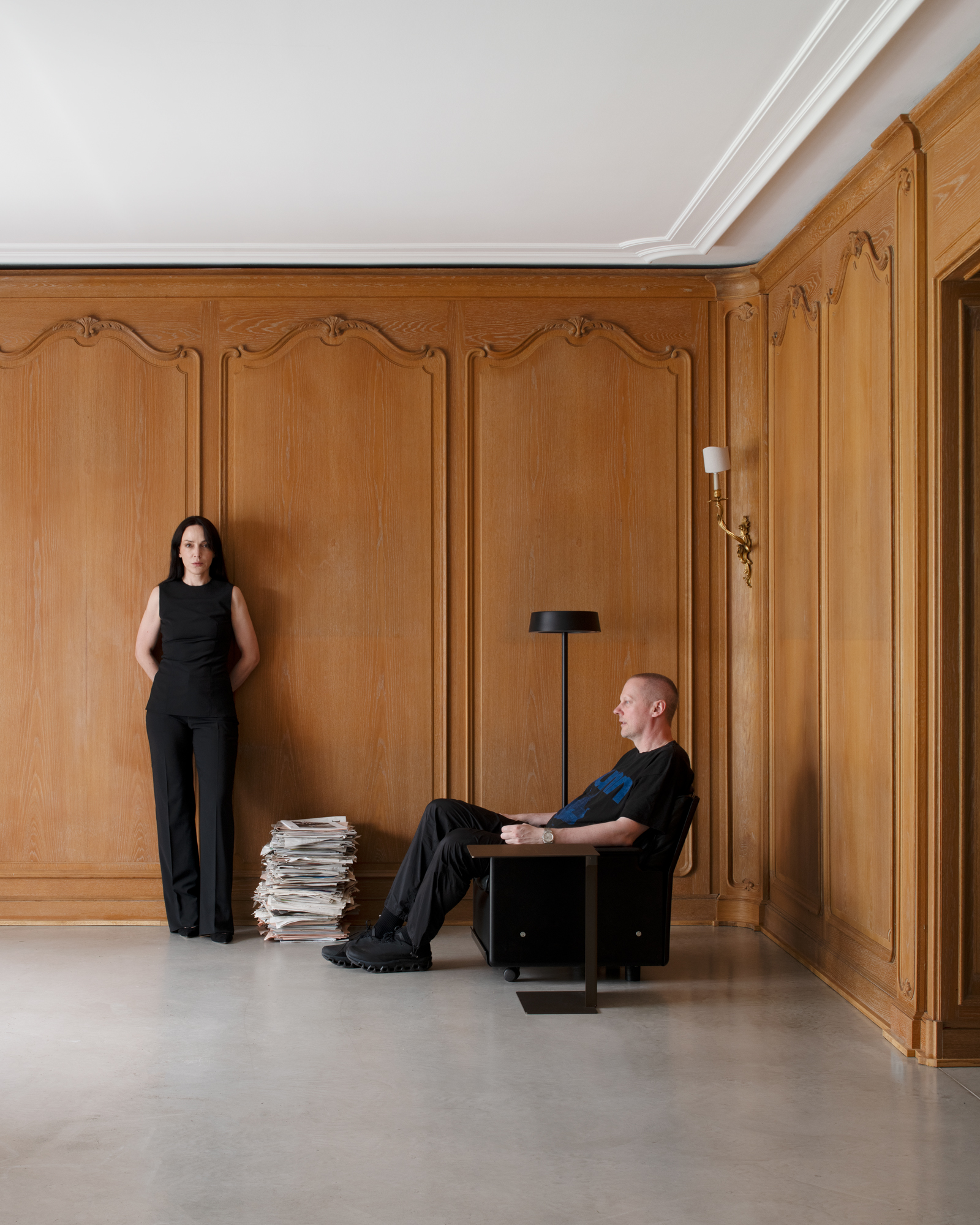
previous4/9
It Was Their Dream Home. But Could They Grapple With Its Dark Legacy?
After a Berlin couple discovered who’d once lived there, they still wanted to make the house their own.
New work for T Magazine - New York Times After nearly two years of searching, the fashion designer Maria Koch and her husband, the magazine editor Joerg Koch, who together run 032c, an art and style publication and clothing label, found a Berlin house that fit their needs and budget. From the street, the Alpine-style home at the edge of the city’s Grunewald forest resembled something out of a Bavarian fairy tale: exposed wooden beams, decorative wrought-iron window grids and a white stucco facade with a gabled roof. But the building’s anachronistic charm was also a permanent reminder of its unsettling past: they soon learned that its first owner was Leni Riefenstahl, the director of the Nazi propaganda films “Triumph of the Will” (1935) and the two-part “Olympia” (1938). Had Riefenstahl not lived there, the property, which has been classified as a historical monument, probably would have been destroyed, like so many other old houses in the neighborhood.
The couple was torn about what to do. They say that neither of them is especially interested in the work of a director known as much for her cinematic genius as for her refusal to express any remorse. But they were interested in how buildings can change over time. They decided to buy the place and try to make it their own.
Written by Nick Kharamis. Photos by Mikael Olsson
After a Berlin couple discovered who’d once lived there, they still wanted to make the house their own.
New work for T Magazine - New York Times After nearly two years of searching, the fashion designer Maria Koch and her husband, the magazine editor Joerg Koch, who together run 032c, an art and style publication and clothing label, found a Berlin house that fit their needs and budget. From the street, the Alpine-style home at the edge of the city’s Grunewald forest resembled something out of a Bavarian fairy tale: exposed wooden beams, decorative wrought-iron window grids and a white stucco facade with a gabled roof. But the building’s anachronistic charm was also a permanent reminder of its unsettling past: they soon learned that its first owner was Leni Riefenstahl, the director of the Nazi propaganda films “Triumph of the Will” (1935) and the two-part “Olympia” (1938). Had Riefenstahl not lived there, the property, which has been classified as a historical monument, probably would have been destroyed, like so many other old houses in the neighborhood.
The couple was torn about what to do. They say that neither of them is especially interested in the work of a director known as much for her cinematic genius as for her refusal to express any remorse. But they were interested in how buildings can change over time. They decided to buy the place and try to make it their own.
Written by Nick Kharamis. Photos by Mikael Olsson
→ T New York Times Style Magazine